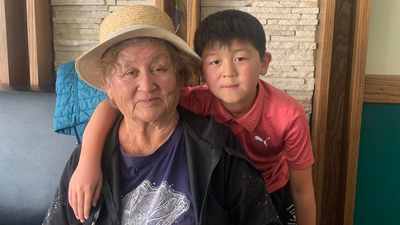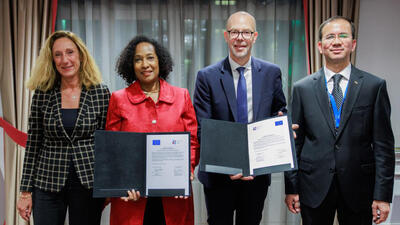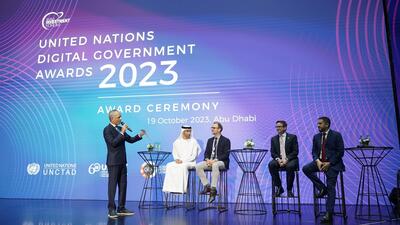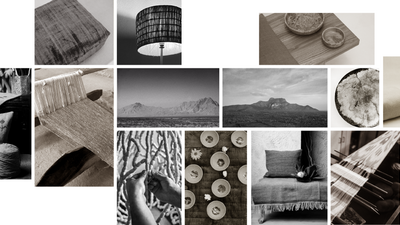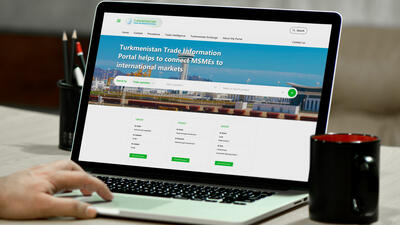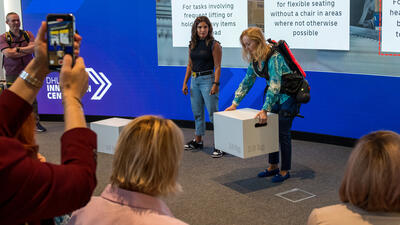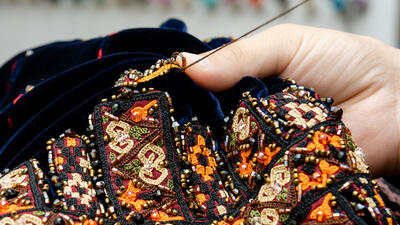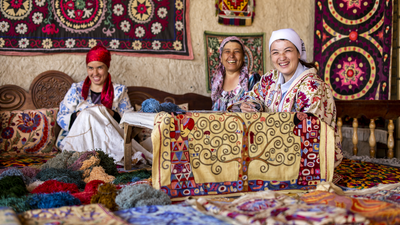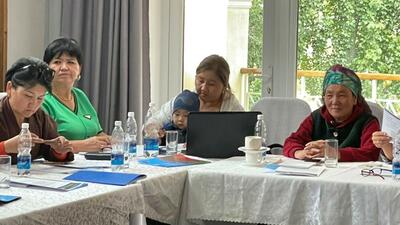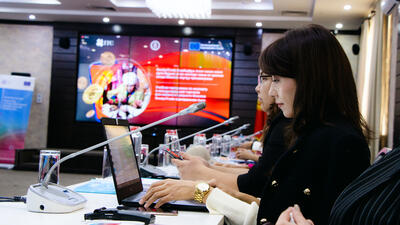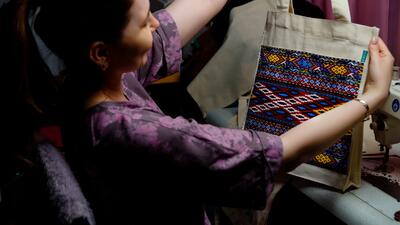
Making art a business with impact
Trade Forum had the opportunity to talk with Sheker Akiniyazova, an inspiring artist, to find out what moved her to build her business, Keshde Art-Studio. She is also a member of the Union of Architects of Turkmenistan and an active volunteer for programmes that support children with disabilities. Sheker has been participating in the ITC Ready4Trade Central Asia E-commerce initiative since 2021.
As a designer for accessories, clothing and home décor, I first started using social media to promote my work. This has helped us attract attention. And it worked; together with local co-working space company Ish Nokady, we won a grant by the British Embassy to teach low-income women to sew during the pandemic.
This is how I could open Keshde Art Studio, where we offered a space for sewing and embroidery for our trained women artisans. We continue to work with them. They come from different Turkmen cities and we supply them with work as much as we can.
I feel proud of our team because we support vulnerable youth and women, and also run a business which promotes national traditions. It is important to contribute to society and motivate others to do the same.
Keshde Art-Studio also gives me the opportunity to have a space for teaching adults and children with disabilities art. Being a volunteer at various embassies in Turkmenistan, I felt inspired to support these kids through art. They should not feel disadvantaged, and art can help them express their creativity and communicate much easier.
We teach creative thinking, develop creativity, and let people have fun in the process. And no matter what profession the child chooses in the future, creative thinking will always help her in making decisions.
The studio is also used as co-working space, where other artisans can exhibit their items for sale.

Our main clients are foreigners who work in international companies and embassies, but this segment of the audience is quite small. The profit is coming from added value, since we do not focus on mass production. We focus on uniqueness and quality.
The mass sewing is more profitable because the turnover is bigger. But we are very happy that our customers appreciate traditional Turkmen products, especially since our main goal is to demonstrate the beauty of Turkmen art to the world.
All items that we make and sell are made by hand. They are unique as we do not repeat products. Making such products is time-consuming. The style we create is called neo-folklore - a combination of traditional and modern, the embroidery is all handmade, which is becoming rarer these days.
Before I signed up, the art studio used to be more of a hobby for me than a real business. Through the programme, I began to look at it differently. Now I see the potential that lies in my work, as well as the work of other craftsmen whom I help with sales.
Learning e-commerce and increasing my online visibility through on-the-job trainings, led to more followers. They increased by 10%, thus my sales increased by 14%, and my new audience reach is at +20,000.
Overall, we got better at marketing and understanding what it takes to increase brand awareness. Participating in these programmes is always useful because it makes you rethink tools that may no longer be relevant today.
What do you need to take your business to the next level?
We need proper logistics for the delivery of goods, since there are many people who want to purchase our products abroad. It would also be good to open stores on various international marketplaces. Finally, advertising is very important for brand promotion and raising awareness of such authentic products.
What is your advice to fellow start-up companies?
The way to success can be hard. Always focus on results.
Follow your idea and passion, study the market and its trends, be patient, don’t be afraid of failures, and create value according to the demands of your audience.
For “Ready4Trade Central Asia”, the European Union (EU) and the International Trade Centre (ITC) are joining forces to contribute to the overall sustainable and inclusive economic development of Central Asia by boosting intra-regional and international trade in the region. Sheker is one of these beneficiaries. The project operates in five countries: Kazakhstan, Kyrgyzstan, Tajikistan, Turkmenistan and Uzbekistan.















